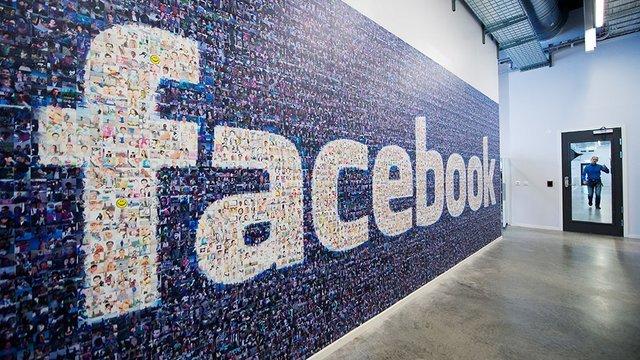Authored by Donald Trump Jr., op-ed via The Hill,
As Big Tech’s censorship of conservatives becomes ever more flagrant and overt, the old arguments about protecting the sanctity of the modern public square are now invalid.
Our right to freely engage in public discourse through speech is under sustained attack, necessitating a vigorous defense against the major social media and internet platforms.
From “shadowbans” on Facebook and Twitter, to demonetization of YouTube videos, to pulled ads for Republican candidates at the critical junctures of election campaigns, the list of violations against the online practices and speech of conservatives is long.
I certainly had my suspicions confirmed when Instagram, which is owned by Facebook, “accidentally” censored a post I made regarding the Jussie Smollett hoax, which consequently led to me hearing from hundreds of my followers about how they’ve been having problems seeing, liking or being able to interact with my posts. Many of them even claimed that they’ve had to repeatedly re-follow me, as Instagram keeps unfollowing me on their accounts.
While nothing about Big Tech’s censorship of conservatives truly surprises me anymore, it’s still chilling to see the proof for yourself. If it can happen to me, the son of the president, with millions of followers on social media, just think about how bad it must be for conservatives with smaller followings and those who don’t have the soapbox or media reach to push back when they’re being targeted?
Thanks to a brave Facebook whistleblower who approached James O’Keefe’s Project Veritas, we now know that Mark Zuckerberg’s social media giant developed algorithms to “deboost” certain content, limiting its distribution and appearance in news feeds. As you probably guessed, this stealth censorship was specifically aimed at conservatives.
Facebook appears to have deliberately tailored its algorithm to recognize the syntax and style popular among conservatives in order to “deboost” that content. “Mainstream media,” “SJW” (for Social Justice Warrior) and “red pill” — all terms that conservatives often use to express themselves — were listed as red flags, according to the former Facebook insider.
Facebook engineers even cited BlazeTV host Lauren Chen’s video criticizing the social justice movement as an example of the kind of “red pills” that users just aren’t allowed to drop anymore. Mainstream conservative content was strangled in real time, yet fringe leftists such as the Young Turks enjoy free rein on the social media platform.
Despite the occasional brave gesture, politicians have been far too sluggish in recognizing the extent of the problem. But the Republican Party and the conservative movement are becoming more vigilant against the suppression of our speech, as we saw at last weekend’s Conservative Political Action Conference (CPAC).
Silicon Valley lobbyists have splashed millions of dollars all over the Washington swamp to play on conservatives’ innate faith in the free-market system and respect for private property. Even as Big Tech companies work to exclude us from the town square of the 21st century, they’ve been able to rely on misguided conservatives to carry water for them with irrelevant pedantry about whether the First Amendment applies in cases of social media censorship.
Sen. Josh Hawley (R-Mo.) has been making a name for himself as a Republican prepared to stand up to Big Tech malfeasance since his time as Missouri’s attorney general. He delivered a tour de force interview with the Wall Street Journal’s Kimberly Strassel in front of the CPAC crowd, one that provided a clear-eyed assessment of the ongoing affront to the freedoms of conservative speech and expression.
Hawley demolished the absurd notion that “conservative principles” preclude taking action to ensure free debate online simply because Big Tech firms — the most powerful corporations in the world — are private companies.
Sen. Hawley pointed out that Big Tech companies already enjoy “sweetheart deals” under current regulations that make their malfeasance a matter of public concern. Section 230 of the Communications Decency Act, for instance, allows them to avoid liability for the content that users post to their platforms. To address this problem, Hawley proposed adding a viewpoint neutrality requirement for platforms that benefit from Section 230’s protections, which were originally enacted to protect the internet as “a forum for a true diversity of political discourse.”
“Google and Facebook should not be a law unto themselves,” Hawley declared.
“They should not be able to discriminate against conservatives. They should not be able to tell us we need to sit down and shut up!”
It’s high time other conservative politicians started heeding Hawley’s warnings, because the logical endpoint of Big Tech’s free rein is far more troubling than conservative meme warriors losing their Twitter accounts. As we’re already starting to see, what starts with social media censorship can quickly lead to banishment from such fundamental services as transportation, online payments and banking.
Left unchecked, Big Tech and liberal activists could construct a private “social credit” system — not unlike what the communists have nightmarishly implemented in China — that excludes outspoken conservatives from wide swaths of American life simply because their political views differ from those of tech executives.
There is no conservative principle that even remotely suggests we are obligated to adopt a laissez-faire attitude while the richest companies on earth abuse the power we give them to put a thumb on the scale for our political enemies.
If anything, our love of the free market dictates that we must do whatever is necessary to ensure that the free marketplace of ideas remains open to all.
via ZeroHedge News https://ift.tt/2UMlxh2 Tyler Durden
